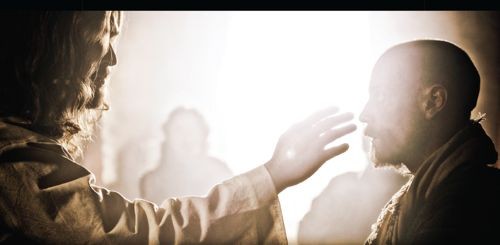I wrote a blog post a while back titled “Biblical Faith VS.Blind Faith”. The point I was making was explicit in the very title; Biblical faith is not a blind faith. It really isn’t. Biblical Faith is a faith based on solid evidence and good reason. I have evidence that God exists, that Jesus rose from the dead, but no matter how strong the evidence is for the truth of Christianity, I still need to place my faith in Jesus in order to be saved. Many people think “How can you have faith if you have evidence?” It’s a fair question. How can I have faith in God if I have evidence for His existence? Well, because the word “faith” is synonymous with “trust”. I walk by faith, not by sight (2 Corinthians 5:7). This doesn’t mean that I believe God exists without any evidence or reason. It means I trust in Him even when I don’t know what He’s up to (Proverbs 3:5-6). Sometimes our circumstances can have deceitful appearances. Sometimes it looks like God has abandoned us when He really hasn’t. Sometimes it looks like God won’t keep His promises. Sometimes we think our suffering has no good purpose to it. It is in times like these that we have to have faith in (i.e to place our TRUST in) God. That His plans are for ours or someone else’s ultimate good (Romans 8:28).
Having evidence for God’s existence does not mean you’re not walking by faith. Faith is placing one’s trust in a person. Just because you have EVIDENCE for that person’s existence does not mean you don’t trust them. In his debate with Richard Dawkins, John Lennox asked Dawkins if he had faith in his wife, and Dawkins replied “yes”. Then Lennox asked him if he had evidence for her existence. This may surprise you, but he said yes to that question as well. So you see, faith and trust are synonyms. Faith is trust in a person whom you know exists. I explained what biblical faith is in much more detail in the original blog post which I linked to above and right here.Click on that for more information.
But, what about what Jesus said to Thomas in John 20? When Jesus rose from the dead, he appeared to his disciples in the upper room. However, Thomas was not with them when Jesus appeared to them (verse 24), so the disciples came to Thomas and told him that Jesus has risen from the dead, but Thomas was so skeptical that he told them that he would not believe that Christ rose unless he was able to stick his fingers in the holes where the nails were in his wrists and where the spear jabbed his side (verse 25). Later Jesus did appear to him and told Thomas “Put your finger here; see my hands. Reach out your hand and put it into my side. Stop doubting and believe.” (verses 26 and 27). Thomas dropped to his knees and cried out “My Lord and my God!” (verse 28). Now, the verse where people interpret that Jesus was condemning Thomas for needing evidence to believe comes next. John 20:29, Jesus says “Because you have seen me, you have believed; blessed are those who have not seen and yet have believed.” Is Jesus chastising Thomas for needing evidence to believe in his resurrection? First, let’s observe what Jesus said and did prior to his death and resurrection. Rewind to the point of his 3 year ministry.
First, if Jesus expected people to believe in Him on the basis of blind faith, then why did Jesus have to perform so many miracles and fulfill all of the messianic prophesies? Didn’t Jesus know that by doing such things that he would be giving the people around him good solid reasons to believe that He was the Messiah promised by God hundreds of years ago? Why couldn’t Jesus have just come onto the scene and shouted in the streets “I’m the messiah! Oh, also, I’m God in a human body! Follow me and you’ll have eternal life! Follow me and you’ll go to Heaven instead of Hell?” Why couldn’t Jesus have just said he was the Messiah and leave it at that? Why couldn’t He have just claimed to be the Son of God and do absolutely nothing to prove himself? Maybe because there were a bunch of false “messiahs” popping up around that period in history. The people of Israel needed some way to differentiate the true messiah from the various phonies. How would Jesus set himself apart from all of these false messiahs? By performing miracles, fulfilling the prophesies of the Old Testament and ultimately by rising from the dead. Jesus never would have done these things if He wanted His followers to have blind, unsubstantiated faith.
Moreover, Jesus told His followers to not believe in him unless He proved Himself to them! “Do you not believe that I am in the Father, and the Father in Me? The words that I speak to you I do not speak on My own authority; but the Father who dwells in Me does the works. Believe Me that I am in the Father and the Father in Me, or else believe Me for the sake of the works themselves” – (John 14:10-11, emp. added).
Later, Jesus noted that when people refused to believe in Him as the Son of God, they were without excuse, since the evidence of His divine identity had been amply demonstrated: “If I had not done among them the works which no one else did, they would have no sin; but now they have seen and also hated both Me and My Father” (John 15:24, emp. added). So their lack of faith could not be attributed to their inability to know the truth regarding the person of Jesus (cf. John 8:32).
“If I do not do the works of My Father, do not believe Me; but if I do, though you do not believe Me, believe the works, that you may know and believe that the Father is in Me, and I in Him” (John 10:37-38, emp. added).
This instance of Jesus actually urging people not to have blind faith was very nicely explained in Apologetics Press’ article “Jesus Said Do Not Believe Me”.
Given these pieces of scriptural evidence, we can conclude that Jesus did not endorse blind faith and actually spoke against it! Now, why would Jesus spend his entire ministry establishing an evidence based belief in His followers but then turn around and condemn such a basis for belief after His death and resurrection? Did Jesus contradict Himself?
No, I do not think that Jesus contradicted himself. When Jesus said to Thomas “Because you have seen me, you have believed; blessed are those who have not seen and yet have believed.”, He wasn’t saying that blind faith is commendable or that those who have blind faith are blessed more than those who actually know why they believe what they believe. Look at the context. The 12 disciples had spent 3 years with God in a human body (John 1:1-3, John 1:14, John 10:30, Isaiah 9:6, Colossians 1), they spent 3 years watching Jesus do miracles, they actually saw His great act of love of dying for them on the cross at Golgotha, and ultimately they saw him rise from the dead and stand before them! They were in an extremely privileged position! Very few Christians have actually seen Christ die for them and then be resurrected. Only a few hundred people in the first century witnessed such an event. You can imagine if you were one of the original 12 disciples who had witnessed these things, that you would think very highly of yourself. You would think that God had blessed you and your friends more than the generations of Christians which came after you. You would especially be glad that you had evidence for the truth of Christianity to such a high degree (next to absolute certainty) that it would be impossible for you to be deceived into thinking it’s not true. After all, you saw it with your own eyes! It’s impossible to get better proof than that!
Jesus was telling His disciples that they believed in Him because they had seen Him. They had the highest degree of proof possible for concluding that some event happened, a degree of proof that no other Christians that came in the centuries that followed would have. Jesus was saying “You believe because you have the highest degree of proof possible, but those who believe on lesser evidence are blessed too. You aren’t more blessed than they are simply because you were in a position to actually see me die and rise from the dead. Those who believe on a lesser level of evidence are blessed too.”
I think there’s very good historical evidence for Jesus Christ’s resurrection. I think the evidence is so strong as to conclude that it happened beyond a reasonable doubt! But even though I believe in the resurrection based on powerful historical evidence, I still don’t have the level of certainty that Thomas did! I believe beyond a reasonable doubt. Thomas believed beyond any possible doubt. The difference between Christians today and the 12 disciples is like the difference between a jury in a courtroom examining the evidence for a crime VS. the people who actually witnessed the crime happen. The jury might believe that the defendant is guilty beyond a reasonable doubt based on very damning evidence, but the eyewitnesses actually SAW the crime happen! The eyewitnesses have even stronger evidence for the event than the jury. The eyewitness believes because he saw it happen with his own 2 eyes. The jury believes based on forensic evidence. Both believe on evidence, though. The jury “believed without seeing” in this sense.
Every person who became a Christian after the resurrection and ascension believes without seeing. Even people whose very profession is about the forensic evidence for the resurrection (e.g Gary Habermas, Mike Licona, N.T Wright, etc) believe Jesus rose without seeing Him with their own 2 eyes. Jesus says that we are blessed because we believed without seeing. We don’t believe based on blind faith, but we still believe despite not having the degree of proof that Thomas did.We did not see Him die and rise with our own 2 eyes.
Discover more from Cerebral Faith
Subscribe to get the latest posts sent to your email.




